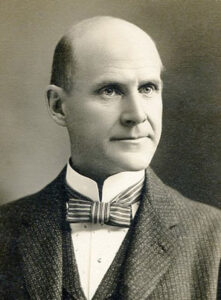The Russian government has been cracking down on Russian citizens who criticize the Russian war on Ukraine. A New York Times article last week described 20-year-old university student Olesya Krivtsova, who was charged with “justifying terrorism” and “discrediting the Russian armed forces” after posting what officials considered was an offensive message on Instagram.
She isn’t the only one. According to the Times, “The government is increasingly penalizing people for posts it considers critical of the fighting in Ukraine — with fines, imprisonment and, in extreme cases, temporarily losing custody of their children.”
A question worth asking is: Is Russian president Vladimir Putin simply copying what U.S president Woodrow Wilson did in World War I?
To suppress dissent against his interventionism in the European conflict, Wilson signed into law three congressional measures: The Trading with the Enemy Act, the Espionage Act, and the Sedition Act. Those measures were used to punish people who dared to criticize Wilson’s intervention in the European war, just like Putin is now doing to people in Russia who criticize his war on Ukraine.
Under Wilson’s laws, anyone who used “disloyal, profane, scurrilous, or abusive language about the form of government of the United States … or the flag of the United States, or the uniform of the Army or Navy” was subject to severe punishment, just like people in Russia are who do the same thing with respect to their government or their armed forces.
Wilson also made it a criminal offense to criticize the fact that Americans were being conscripted or drafted to fight and die for freedom. That’s why they went after Eugene Debs, who ended up being sentenced to 10 years in prison just for giving a speech. The Supreme Court upheld his conviction.
Needless to say, Russian citizens who question Putin’s draft face the same or similar consequences.
The Trading with the Enemy Act and the Espionage Act are still on the books even though World War I ended more than 100 years ago. These two laws are now being used to punish people who dare to publish evidence of war crimes and criminal activity on the part of the U.S. national-security establishment. Julian Assange and Edward Snowden are two notable examples of this phenomenon.
There is no doubt that Putin would treat people who disclosed evidence of war crimes and criminal activity on the part of the Russian national-security establishment in the same way that U.S. officials are treating Assange and Snowden.
Rather than simply criticize Putin for suppressing dissent against Russia’s war on Ukraine, wouldn’t a better strategy be to repeal the U.S. government’s World War I-era measures that he might well be copying? Isn’t it better to lead by example rather than by hypocrisy?




